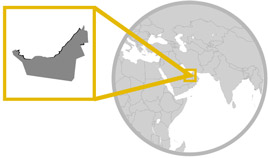Economy of Thailand:
Thailand has a diverse and rapidly growing economy that is considered one of the leading economies in Southeast Asia. The country's economy is driven by various sectors, including manufacturing, agriculture, tourism, and services. Thailand is a significant exporter of various goods and services, contributing to its economic growth and development.
Key Industries:
Manufacturing: Thailand is a major manufacturing hub, producing a wide range of products, including electronics, automobiles, textiles, and machinery. The country attracts foreign investments due to its skilled workforce, infrastructure, and strategic location.
Tourism: The tourism industry plays a vital role in Thailand's economy. The country is famous for its beautiful beaches, cultural heritage, and vibrant cities, attracting millions of international tourists each year.
Agriculture: Agriculture has been a significant sector in Thailand's economy for centuries. The country is a leading producer of rice, rubber, fruits, and seafood, among other agricultural products.
Services: The services sector, including finance, telecommunications, and retail, contributes significantly to Thailand's economy.
Money and Banking:
The currency of Thailand is the Thai Baht (THB). One Baht is divided into 100 satang. Banknotes and coins of various denominations are in circulation, with banknotes being more commonly used for daily transactions.
Thailand has a well-established banking system with numerous commercial banks, both domestic and international. These banks offer a range of financial services, including savings and current accounts, loans, credit cards, and foreign exchange services. The Bank of Thailand (BoT) is the country's central bank responsible for monetary policy, currency issuance, and overall financial stability.
Taxes in Thailand:
Thailand has a progressive tax system, meaning that higher-income individuals are subject to higher tax rates. The key components of Thailand's tax system include:
Personal Income Tax: The personal income tax rates range from 5% to 35%, depending on the individual's income level. There are tax deductions and allowances available to taxpayers, such as allowances for dependents and deductions for certain expenses.
Corporate Income Tax: Corporate entities are subject to corporate income tax at a flat rate of 20%. However, certain types of businesses may be eligible for tax incentives or reduced rates under specific investment promotion schemes.
Value Added Tax (VAT): VAT is imposed on the sale of goods and the provision of services at a standard rate of 7%. Some items may be exempted or subject to a reduced VAT rate.
Property Tax: Property tax is levied on land and buildings owned by individuals and companies. The rate varies based on the type of property and its assessed value.
It's important to note that tax regulations and rates may change over time, so it's recommended to consult with a tax professional or the Thai Revenue Department for the most up-to-date information on taxes in Thailand.

